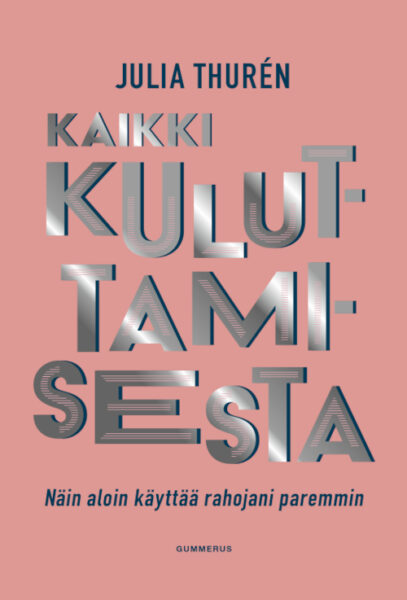This smart book on consumerism shows where to turn your gaze in a post-KonMari world.
Author: Julia Thurén
Finnish original: Kaikki kuluttamisesta. Näin aloin käyttää rahojani paremmin
Publisher: Gummerus, 2021
Genre: nonfiction
Number of pages: 246 pp.
Reading material: Finnish original, English sample, English synopsis
Enlightened and responsible citizens have known for years that fighting climate change and sustaining an environment conducive to human life is going to demand changes in our lifestyles. There has been a call for individual responsibility in consumer choices, whether that means giving up meat, buying responsibly produced goods, or decluttering our lives à la KonMari.
But there has been less discussion of the overall structures that steer consumption, and even less about whether changing our patterns of consumption could actually improve our lives. Could we spend our money on things that are truly important – time, freedom, security, and meaning?
Everything You Need to Know about Consumerism is a book that increases its readers’ awareness, at times uncomfortably so. But it also offers hope – and answers. It doesn’t lecture or shame, but rather paints a visionary, fact-based, historically revealing landscape of the links between the climate crisis, capitalism, and the psychology of consumption.
The work has been nominated for the 2021 Tieto-Finlandia Prize, Finland’s premiere literary award for works of nonfiction.
“If media takes and conversations constantly revolve around how small changes made by the individual can make a difference, the focus isn’t going to be where the power to make changes actually lies: with corporations and politicians. There’s even a term for this: responsibilization, which means that those with a lot of power, such as politicians and the CEOs of large corporations, place responsibility on the individual, for instance the consumer. A fast-fashion chain encourages shoppers to collect “eco-points” but doesn’t do anything to change its core business model. A politician urges people to recycle but won’t advocate for strict waste-management laws.”
About the author:
Julia Thurén
